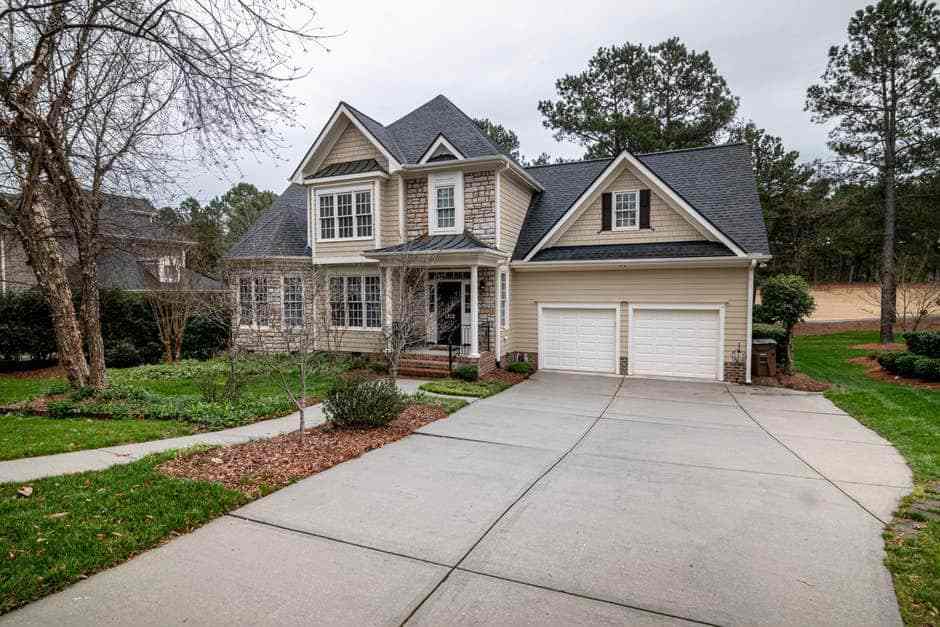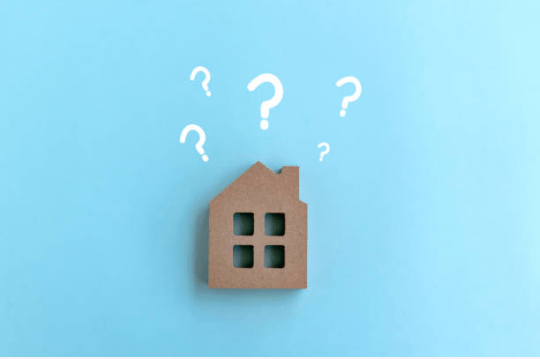Almost 40% of homes in the U.S. are free of a mortgage, but there are still the other 60% that have decisions to make about financing. If you are trying to decide on whether to remodel your home or sell your current home and buy another one, we are going to help you today. We will help you shed more light on the question, “Should I sell or refinance my house?” and more.
Continue reading this article to learn more about whether you should refinance a mortgage or if you should sell your house and buy a new one.
What is Home Equity?
Before we discuss the difference between the two sets of benefits each product provides, we need to understand what equity is. Equity is the portion of the home you actually own. With each mortgage payment, a portion goes to the principal. The more principal is paid down, the more house you own. What’s also tricky about equity is the home’s value also plays a large role. If your property value goes up or the mortgage loan balance is paid down, you have more equity. The same goes for the reverse. If your home’s value goes down, you also lose equity.
Let’s think of it in simpler terms. Let’s pretend you own a rare collectible and you only paid $100 for it, but now it’s worth $500. When you first purchased it, you had equity of $100. Because the value of the item went up to $500, your equity has now increased to $500. If you sold the item, you will be getting $500 for it instead of the $100 you originally paid. Again, the same goes for the reverse. If there is no demand for this rare collectible, it is worthless. If the value for it sinks to $5, you have lost all of your equity and then some. You made a bad investment. When this happens with real estate, this means the homeowner is underwater on their mortgage.
How do you build equity?
Building equity can be done via a loan repayment due to the fact that most home loans have equal monthly payments that go toward interest and principal. As your equity increases as you pay down your loan balance. Building equity can also occur with price appreciation where your home gains in value due to the real estate market and your equity grows without you doing anything.
Using your equity for a home equity loan
Due to equity being an asset, you are able to tap into this via partial or lump sum withdrawals. This is usually done via a home equity loan, where you create a second mortgage and use those funds for home improvement, debt consolidation, etc. These loans allow you to access your equity at fairly low interest rates and are easier to qualify for because they are secured by the house. These types of loans can be good alternatives to credit cards or personal loans as you can get an interest rate that is usually much lower.
A HELOC or home equity line of credit is a type of loan that allows you to pull out money as you need and only pay the interest as you borrow, similar to that of a credit card. With this loan, you are able to withdraw during the draw period and is typically used for spend over a longer term such as college tuition payments or home remodeling. It is important to keep in mind that when the draw period ends after a certain number of years, you will then enter a repayment period usually featuring variable interest rates.
How do you qualify for a home equity loan?
The biggest qualification for a home equity loan is your credit score. In general, you’ll need a minimum credit score of 620 to qualify for a home equity loan and usually higher than that for a HELOC. Another factor is your LTV or loan-to-value ratio, as you will typically need at least 20% equity in your property to qualify.
Using your equity for a Cash Out Refinance
When people talk about their homes being an investment, they’re usually referring to turning a profit after selling it, or renting it out. For people who only have a primary living space, a cash out refinance can help homeowners take advantage of the peak housing prices without having to sacrifice their home. Since not everyone can afford to own multiple properties, this is beneficial.
If someone decided to sell their home, they would definitely be getting a lot more money back from the sale than when they first purchased the home, but what next? If they were thinking to purchase a home with that money, they would have to pay today’s prices for that home. With all of that profit going towards a different home that’s much more expensive, could you really call that a profit?
There are many reasons homeowners have taken money out of their home. With a cash out refinance, homeowners pay for a home remodel to increase the value of their own home, while also improving their current living conditions. They could even use the money to use as a down payment for an investment property so when housing prices hit their peak again, they can fully take advantage. Homeowners have used the funds from their cash out refinance to pay for their child’s education or to start a business. Whatever the case may be, a cash out refinance is there for homeowners who have equity in their homes to use for whatever they need.
Refinancing
Refinancing your home, so you can stay in your house does offer quite a few benefits including not having to move. Moving can be a whole ordeal and it can be rather costly. The farther away you move, the more expensive it is.
Besides moving is expensive, it can also be hard on your family emotionally and mentally. If your family has good relationships with the people in the neighborhood, it can be hard to leave those people behind — even if it is a short drive away. If you can refinance and stay in the home, it might be your best option if you love your neighborhood.
When you are thinking of refinancing, keep in mind that it starts a whole new loan. If you are going for a 15 or 30-year loan, you’ll be paying for those years and none of the years you’ve paid are counted toward the years on this new loan. While it might seem daunting to start over again, if you need cash and you have value in the home, you may be able to get cash-out refinancing.
If you don’t have more than 20% equity, you will have to pay private mortgage insurance (PMI), which means you won’t be able to avoid paying private mortgage insurance on your loan. PMI is an added expense that can cause you to feel a little over your head with your mortgage each month.
Another pro for refinancing is if you aren’t getting a good rate on your loan. Even a few points on your mortgage can make a big difference in how much money you’ll pay over the lifetime of your loan.
Keep in mind that you might not be able to refinance a loan if something isn’t right with your credit. While your FICO score might be good, you also have to think about your debt to income (DTI) ratio. If your DTI is too high, you won’t be able to qualify for a refinance, since essentially, a refinance of a loan is getting a new loan.
If you’re in trouble financially, you should speak to your lender and ask them if there are any options to help you keep from going into foreclosure.
Using your Equity to Sell Your Home
Many people buy their first home thinking of it as an investment, hoping to sell it for more than what they paid for it. As time goes on, housing prices go up and so does the value of your home. Picking the time to sell is important, since it can dictate how much profit you can get for the sale of your home. If you sell your current home too early, you lose out on what you could’ve gotten. If you get greedy and wait too long to sell, you could lose out on a lot more.
But what do you do if you don’t have an investment property to sell and want to take advantage of today’s high home values? A cash out refinance is a great way to take advantage of your home’s equity while still living in your home.
Selling
If you want to remodel your house, but you don’t need as much space anymore, selling your home and finding a new one might be the right option for you. Many times, you’ve bought a big house when your kids were small and once they grow up, you don’t need so many rooms. If you are looking to downsize for the long-term, it wouldn’t make sense to refinance.
Your mortgage payment isn’t the only reason to think about selling your home. If life circumstances have shifted and the home or its location no longer serves you, selling your home and finding something that works better may be best for you and your family.
Is the only reason you are thinking about moving because of a lower house payment? If that is the case, you should consider staying put. Earlier we mentioned that you’ll have moving expenses that will eat up much of the money you save from selling your home and moving — unless you are downsizing significantly.
If you are worried you’re going to go through foreclosure, selling your home might be a good idea. If you can find a buyer that will take the house before it gets foreclosed on, you can avoid the process altogether. Keep in mind that many lenders are more than happy to work with you on getting out from under the loan.
Foreclosure is expensive for the lender as much as it is for you, so if you can show them proof that you can get out of the situation, they may offer you an extension.
Which Choice Is Best for You?
As you were reading through the information above, you likely saw yourself in some of the situations we talked about. Maybe you are the couple that now has an empty nest and is ready to downsize. On the other hand, you might be the couple that is in a home that isn’t serving their needs anymore.
As you’re looking at these options, there is no one right answer. There is only the right answer for you and your family. Review the information above again and see which option looks like the best fit for you.



